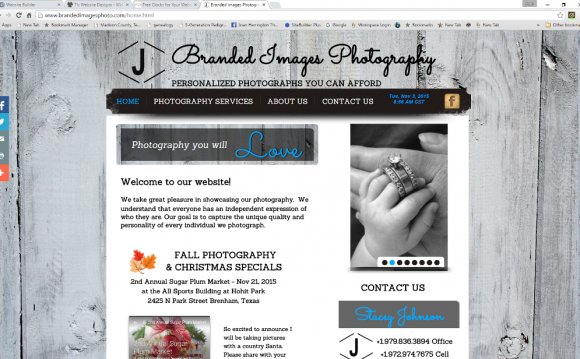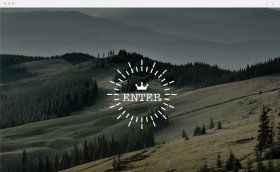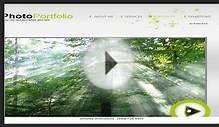
 In the dynamic web design industry things always stay in motion. New and exciting concepts, techniques and tools are constantly being introduced. Original minds keep the industry fresh by challenging norms and coming up with innovative styles. For anyone interested in web design, marketing and online business, this means always keeping your finger on the pulse of the industry.
In the dynamic web design industry things always stay in motion. New and exciting concepts, techniques and tools are constantly being introduced. Original minds keep the industry fresh by challenging norms and coming up with innovative styles. For anyone interested in web design, marketing and online business, this means always keeping your finger on the pulse of the industry.
As part of our mission to make professional website building easy, Wix is always on the lookout for new trends and styles in web design. We want to make sure that our platform offers the most cutting edge designs and modes, and that our users have everything they need to create beautiful websites.
With a new year coming up, we decided to share some of our insights on where web design is headed in 2016. Now, it might seem a bit early for a new year predictions list, but think about it this way: 2016 is one business quarter away. If you want to make sure your website is ready for it, why not start now?
On that note, we are happy to share our the Wix experts’ web design predictions for 2016. By the time you finish reading this you’ll be mostly excited, but also a tiny bit terrified.
The Good
Graphic Text: Get ready to see a lot of creative use of text that is comprised of images, textures and patterns. Typography has always been a significant part of web design, but with the integration of texts and other graphic elements, it will now gain even more importance in the overall site look.
Customer-Centric Web Design: The idea that web design should be guided by the customers’ needs sounds self-explanatory, and yet it is only now starting to emerge as a serious consideration in the design process. Customer-centric web design promotes designers and site owners to envision the customers’ journey through your website and to optimize the site in order to make the journey better.
Centered Content: A powerful style that will become ever more prevalent on homepage designs is centered content, which places the main message of the page right at the center of the screen, surrounded by a striking visual or a smooth texture that creates a dramatic effect. This layout works brilliantly on pages that want to emphasize a minimal amount of content.
Split Content: With centered layouts rocking content-light pages, pages that carry more substance will also get a facelift with split content layout. Split content divides the screen into wide sections, not Pinterest-style boxes. Significantly, the look of each different section can vary, not being dictated by a single aesthetic tone. This gives designers a huge space for creativity without threatening the clarity of content hierarchies.

The Bad
Too-Long Scrolling: Mobile design and the hegemony of Facebook made long scrolling a common trend in web design. This type of page layout certainly has a lot of advantages and it generated many fantastically designed websites. However, we are now discovering that there is such a thing as too long. Exhausting scrolling, unclear division of content into section, heavily-animated scrolling effects – these are just some of the risks in designing a page with no end in sight.
Hidden Navigation: Another element that emerged due to the success of mobile design is hidden navigation, which compresses the entire menu into one icon (also known as the Hamburger Menu) that expands once clicked on. This makes perfect sense on a mobile device, where every bit of space is extremely valuable, but the increasing presence of hidden navigation on full-size websites can really harm the site’s usability. A golden rule in web design is to avoid unnecessary complications. Hiding the navigation menu and adding an extra click in the visitors experience is pretty much a textbook definition of a complication.
Overlapping Elements: A text on an image, which is placed on a shape, which is placed on an image, which is placed on a pattern background with a conflicting color palette – who can make sense of all of this chaos? Let’s agree to keep things clear, and one way to do that is to avoid excessive and offensive layering.
Website Intro Page: Society is facing a serious problem. Websites are gaining too much weight. Instead of addressing this issue by trying to reduce the content load (and thus improve the loading time!), more and more people choose to disguise the problem by adding an introduction page to their site, where visitors are greeted while the chubby site slowly loads. The outcome? Instead of bringing your visitors closer, you push them away by adding an extra page to their viewing experience. Sometimes it’s easier to just go on a content diet.
The Ugly
App Overload: It’s truly awesome that site owners can integrate 3rd-party tools and apps to their sites, but surely there is a limit. It’s tempting to add more functionalities, true, but remember that these tools were all designed separately by completely different people. They often have totally different styles, and, especially if you add multiple apps per page, an aesthetic conflict is inevitable.
Google Deep Dream: The creepy psychedelic universe that Google unleashed is inspiring people to create scary things. For now, it’s only your social feeds that are filled with bizarre images of dogs, eyes and limbs, but we fear that soon enough we will start seeing these twisted visuals on websites as well.
YOU MIGHT ALSO LIKE










